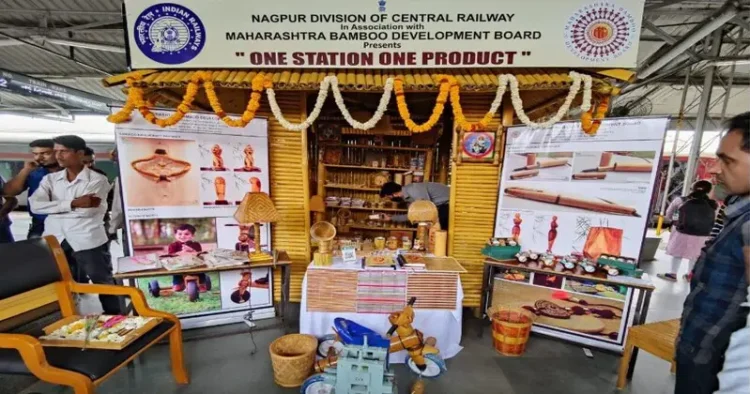Launched with the aim of bolstering the government’s ‘Vocal for Local’ initiative, the One Station, One Product (OSOP) scheme serves multiple objectives. It not only provides a dedicated market for local and indigenous products but also generates additional income opportunities for marginalised sections of society.
The scheme, now operational at over a thousand railway stations nationwide, is a testament to the commitment of Indian Railways in supporting local entrepreneurship and fostering economic growth in diverse regions.
Under the scheme, OSOP outlets at railway stations are allotted for showcasing, selling and giving high visibility to indigenous/ local products. The pilot of the scheme was started on March 25, last year and as of November 9, 1037 stations are covered with 1134 OSOP outlets across the country.
The OSOP initiative, aimed at providing opportunities for enhanced livelihood through skill development, focuses on local artisans, potters, weavers, handloom weavers, craftsmen, and more. The pilot project, launched on March 25, 2022, for 15 days at 19 stations, paved the way for the comprehensive OSOP policy issued on May 20, 2022.
Under this scheme, Indian Railways offers uniquely designed sale outlets at stations, showcasing indigenous/local products with distinctive aesthetics. Allotment of outlets is carried out through a tendering process, ensuring a fair distribution of opportunities to applicants meeting the scheme’s objectives.
As per the official statement of the Ministry of Railways, a total of 39,847 direct beneficiaries have availed opportunities under the OSOP scheme, with an additional estimated 1,43,232 indirect beneficiaries,, assuming an average of 5 beneficiaries per allotment. The cumulative sales from these outlets have reached an impressive Rs 49.58 crores.
To ensure the scheme’s benefits reach the target groups, extensive public outreach measures, including newspaper advertisements, social media campaigns, public announcements, press notifications and personal visits to artisans have been implemented by the Railway Authorities, the statement added.
The products available under the OSOP scheme span various categories, including artefacts, handicrafts, textiles, handlooms, toys, leather products, traditional appliances, instruments, garments, gems and jewellery and locally processed or grown food products.
It is notable that the operational units are spread across different states, with Tamil Nadu, West Bengal and Uttar Pradesh leading in the number of stations and units. The diversity and reach of the OSOP scheme underscore its positive impact on local economies and the promotion of indigenous craftsmanship nationwide.
This initiative reflects a collaborative effort between the government and various stakeholders to boost the local economy, empower small-scale producers, and enhance the overall socio-economic landscape of the country. The success of the OSOP scheme highlights the potential for similar endeavours to contribute to the vision of a self-reliant and economically vibrant India.




















Comments